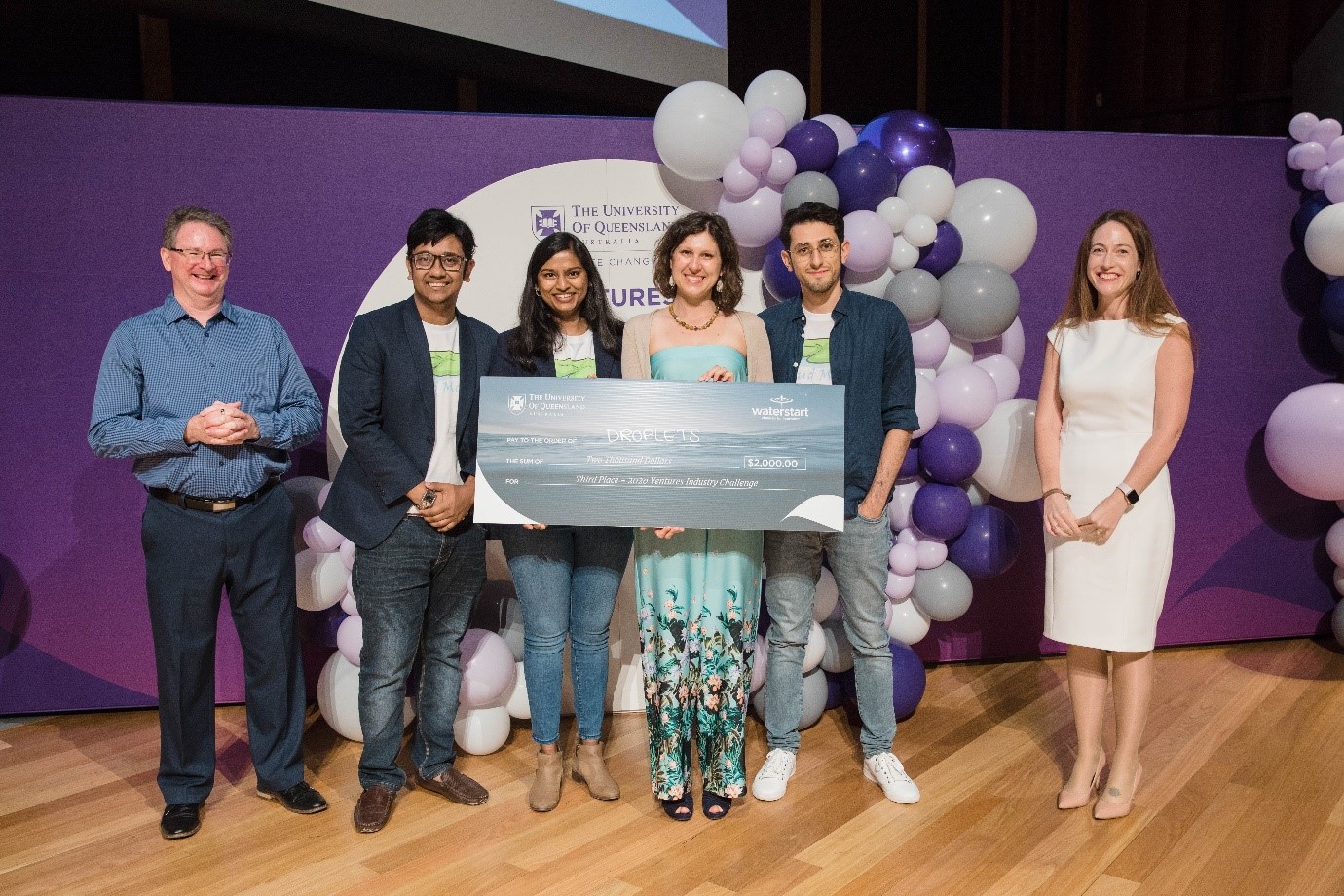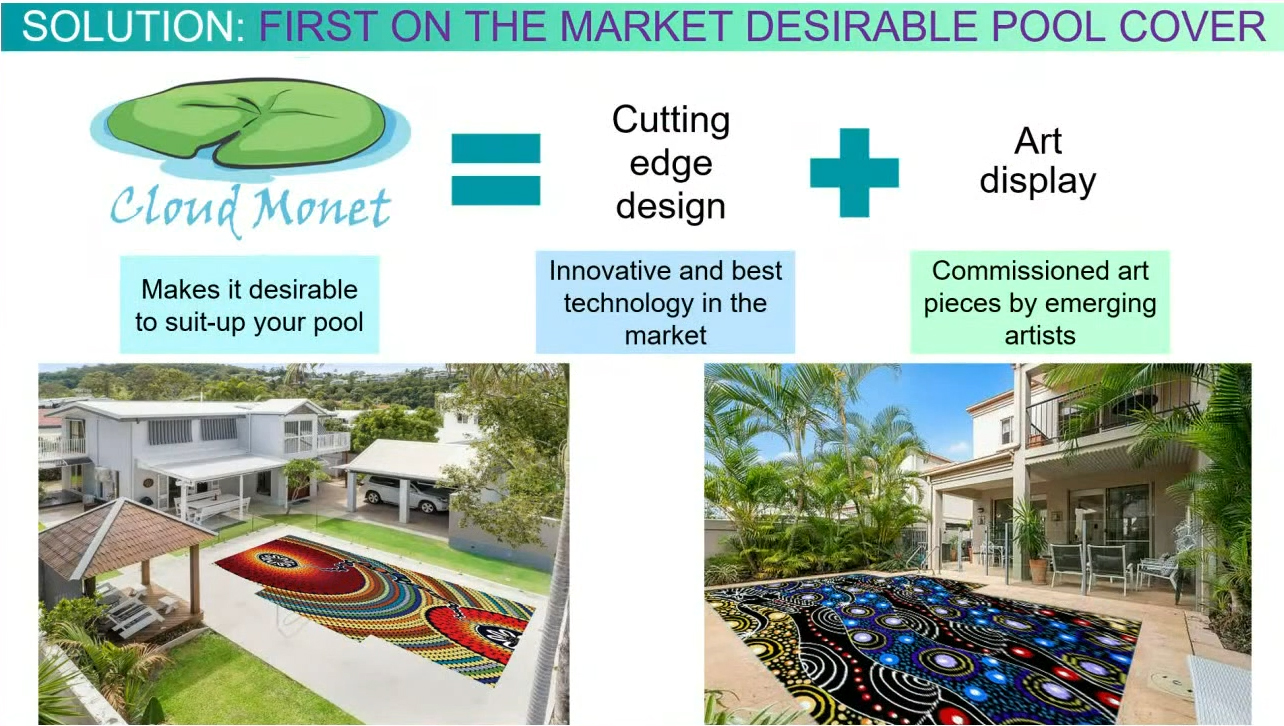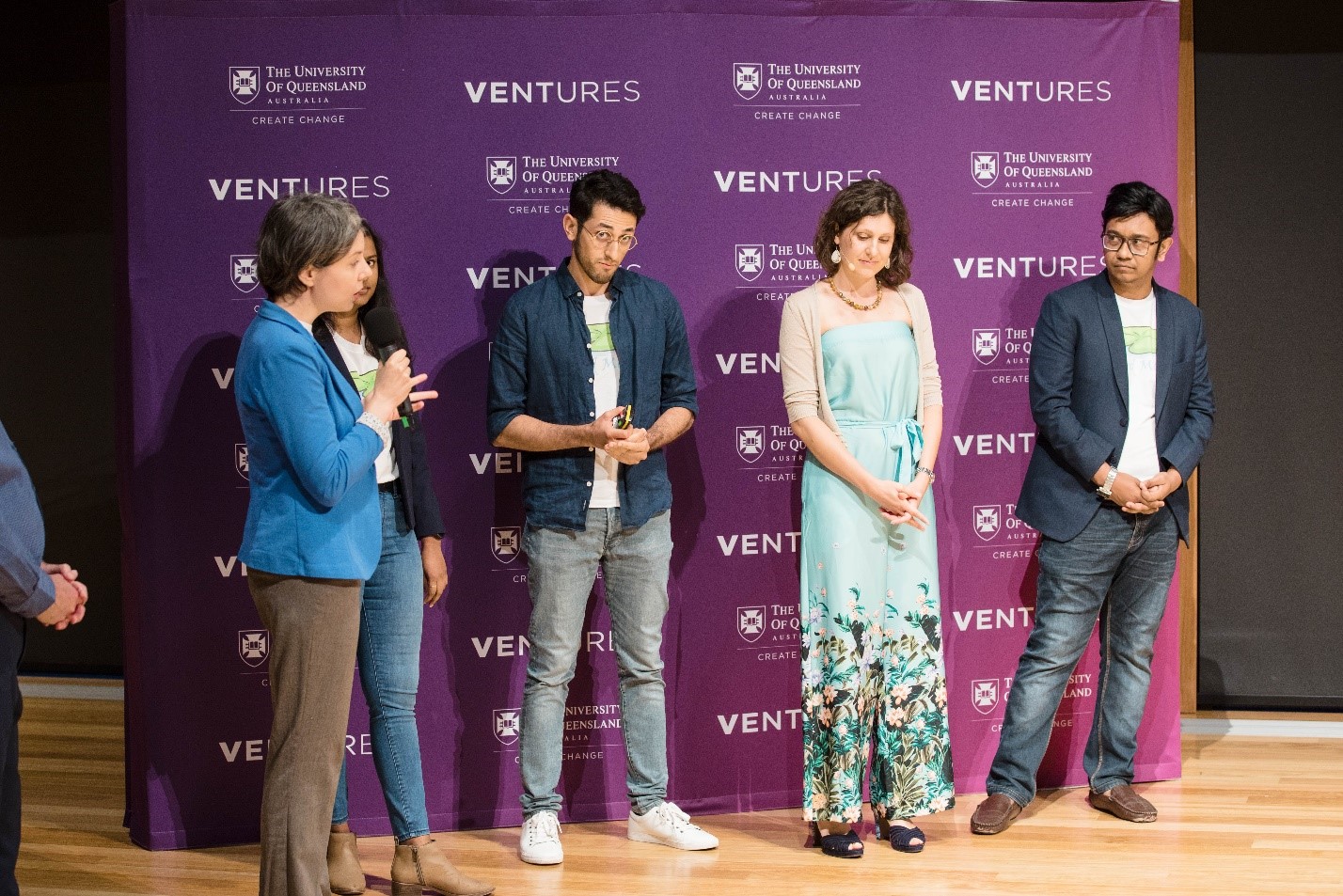IRP4 research students devise water security solution
Cities and regional towns in Australia are grappling with an enormous water security challenge. Already stressed water supplies and waterways are becoming increasingly vulnerable.
Given the severity of Australia’s water scarcity issues, the topic was the focus of the University of Queensland’s inaugural Ventures Industry Challenge, which asked students to use their entrepreneurial skills to help address water scarcity.
During the six-week challenge, small teams had to tackle a water-related issue from a technological, social or environmental perspective, and pitch their concept to judges for a chance to share in a $15,000 prize pool.
Three of the CRCWSC’s IRP4 research students, Beata Sochacka, Shenbagameenal Surendran and Mojtaba Moravej, were part of the team that won third place at the event.

Beata, Shenbagameenal, Mojtaba and their teammates devised a novel way to save water in backyard swimming pools by combining state of the art pool covers with a unique art piece.
In their pitch, the team said without a pool cover, a backyard pool can lose 55 L of water a day. On Queensland’s Sunshine Coast alone, there are 60,000 backyard pools, which altogether lose over
1 billion L of water each year. Many of the people with these backyard pools are affluent, which has two implications for water use:
- They are unlikely to compromise their lifestyle for an unattractive pool cover.
- Research shows this group doesn’t respond to educational campaigns or financial incentives because they can afford to pay for the lost water.
The team’s innovation combines the need to save water with the need to maintain aesthetics for pool owners, by creating a pool cover that is a unique art piece. The covers can save:
- around 90% of evaporative loss
- 40–60% on energy for heating
- 30–40% of chemical costs.

The cover improves the appearance of the garden, which is important to owners, and also creates a way for utilities to engage with what is currently a disengaged community segment.
The team tested the idea by speaking with pool owners, who supported the concept. The state of the art technology costs around $20,000 per pool cover, and the team demonstrated the product’s commercial potential over 10 years as part of their pitch.
Other winning entries in the 2020 Ventures Industry Challenge were Team Sol, for a raindrop in-house smart water meter and application that enables customised water plans with community engagement and support, and Watech for a concept to help the community know their water better through water quality detection sensors.
Beata, Shenbagameenal, and Motjaba’s five-person team was called ‘Droplets Cloud Monet’ and comprised two other research students from the Advanced Water Management Centre: Alice Strazzabosco and KM Nazmull Islam.

Run in partnership with WaterStart, a not-for-profit water innovation agency, the 2020 Ventures Industry Challenge provided students with the opportunity to connect and network with industry-experienced experts and resources to bring their ideas to fruition. The entries were judged by Dr Jessica Gallagher, University of Queensland Pro-Vice-Chancellor (Global Engagement and Entrepreneurship); Daniel Harris, Director, Innovation, Science and Water Policy Programs, Department of Natural Resources, Mines and Energy; Lisa Jenkinson, Director, Digital Delta – KPMG; and Professor Steven Kenway, Senior Research Fellow, Advanced Water Management Centre.